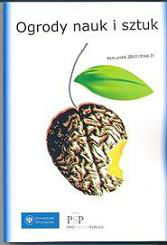Nieokreśloność gatunkowa i rozbieżność interpretacji:postmodernistyczne spojrzenie na Salome Oscara Wilde’a
Generic indeterminacy and divergence of interpretation: post-modernist look at Oscar Wilde’s Salomé
Author(s): Agata SłowikSubject(s): Literary Texts
Published by: Fundacja Pro Scientia Publica
Keywords: fin de siècle; Decadence; Wilde; drama; parody; post-modernism
Summary/Abstract: In his play Salomé, Oscar Wilde provides readers with the veiled commentary on the vices of nineteenth century bourgeois society. He sets the action in Biblical times in order to point out the characteristic qualities of the Victorian man by means of defamiliarization. Wilde manages to heighten the awareness of his reading public, not only by the use of such a ploy, but also - most importantly - by skilful deployment of parody, which once again allows him to delude his contemporaries with a ‘knife in the pillow’ device. Indeed, even though the reading of Salomé in terms of its parodic quality at fi rst might seem as atypical, it reinforces the play’s deeply ironic and critical overtone and allows multi-layered interpretation. Therefore, it is due only to such a post-modernist analysis that the play can be understood as both a self-conscious and self-refl exive criticism, and an extended metaphor of the fi n de siècle upper class society.
Journal: Ogrody Nauk i Sztuk
- Issue Year: 2013
- Issue No: 3
- Page Range: 238-244
- Page Count: 6
- Language: Polish

